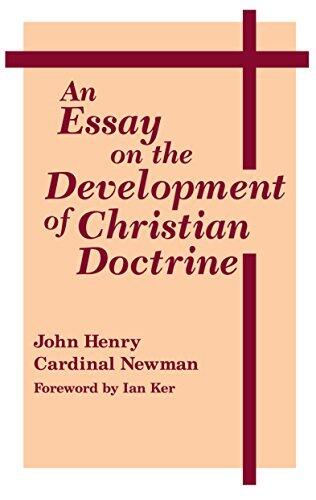
An Essay on the Development of Christian Doctrine
by:
John Henry Newman
,
Ian Ker
Language: English
Format: Kindle
ISBN 10: 0268158096
ISBN 13: 9780268158095
Publication date:
March 2nd, 1994
Publisher: University of Notre Dame Press
Pages: 467
Genres: Religion & Spirituality, Art & Photography
John Henry Newman offers a compelling exploration into the evolution of Christian doctrine through this insightful essay. Drawing on both theological and historical perspectives, he examines how core beliefs and practices have transformed over time, emphasizing the dynamic nature of faith. His argument posits that development is not merely alteration but rather a deepening understanding of divine truth, shaped by the Church's experience and understanding.
In collaboration with Ian Ker, the work reflects on the necessary adaptability of doctrine in response to changing societal contexts and challenges. Newman's thoughtful analysis encourages readers to engage critically with their beliefs, inviting dialogue between tradition and contemporary issues. This book not only serves as a foundational text for theology students but also resonates with anyone seeking to understand the complexities of faith in a modern world.
With its intellectual rigor and clear prose, this essay remains a significant contribution to Christendom’s ongoing conversation about belief and practice. Newman's reflections continue to inspire and challenge readers, offering a vision of a living tradition that embraces growth while remaining rooted in its original principles.
In collaboration with Ian Ker, the work reflects on the necessary adaptability of doctrine in response to changing societal contexts and challenges. Newman's thoughtful analysis encourages readers to engage critically with their beliefs, inviting dialogue between tradition and contemporary issues. This book not only serves as a foundational text for theology students but also resonates with anyone seeking to understand the complexities of faith in a modern world.
With its intellectual rigor and clear prose, this essay remains a significant contribution to Christendom’s ongoing conversation about belief and practice. Newman's reflections continue to inspire and challenge readers, offering a vision of a living tradition that embraces growth while remaining rooted in its original principles.